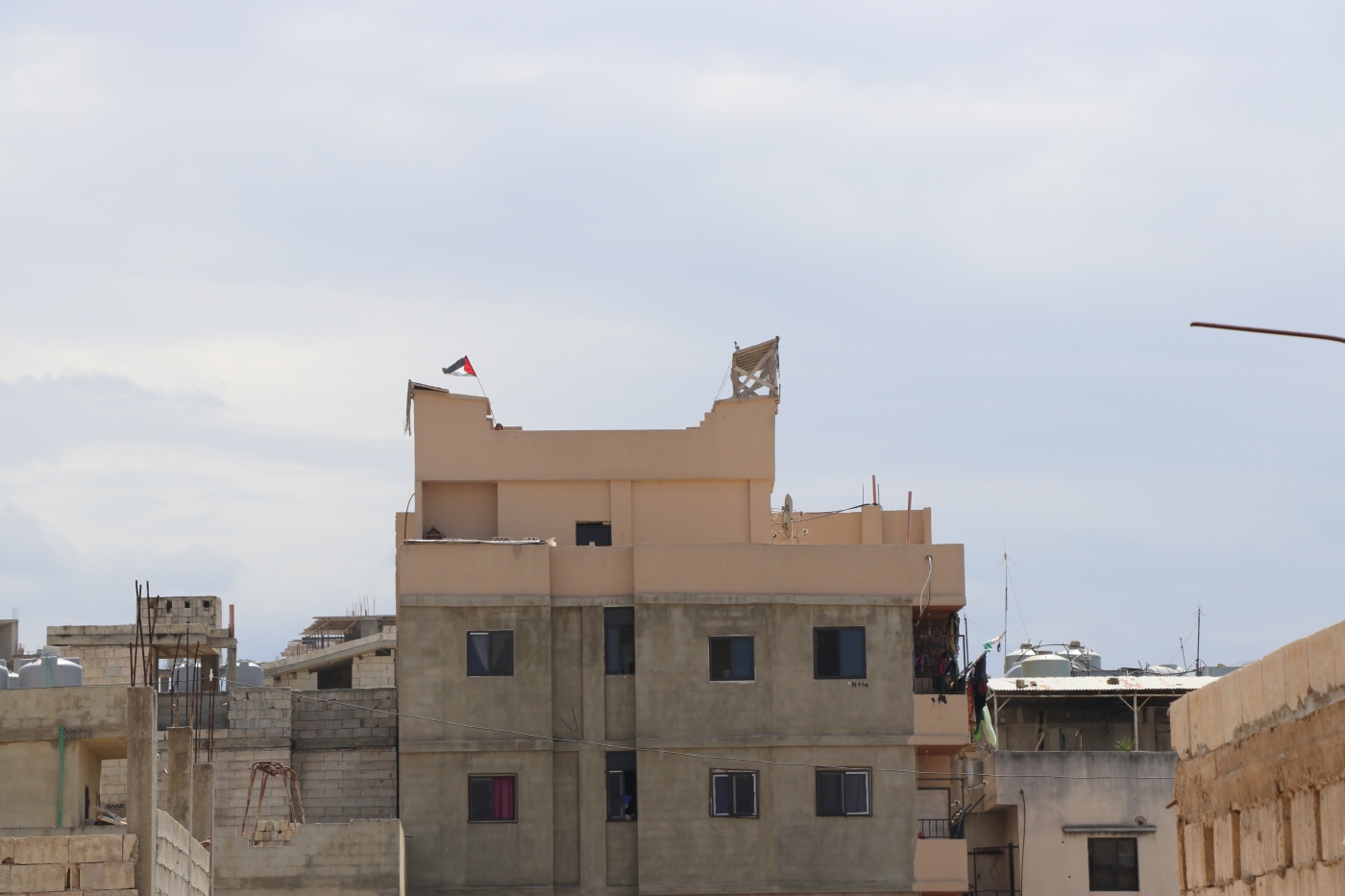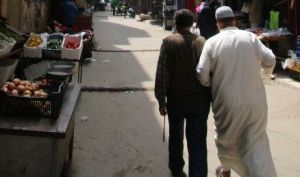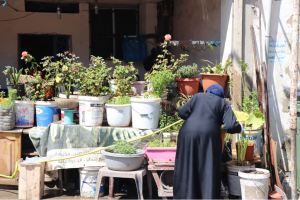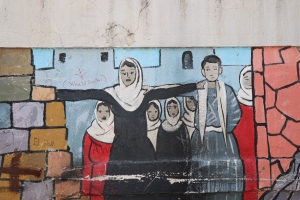Read the series here.
This blog was published on 2nd December, 2018.
Thinking through ‘the global South’ and ‘Southern-responses to displacement’: An introduction
by Prof. Elena Fiddian-Qasmiyeh, Principal Investigator, Southern Responses to Displacement.
How can we conceptualise ‘the global South’, and to what extent can thinking through a ‘Southern lens’ help us develop more nuanced understandings of the nature and implications of diverse responses to conflict-induced displacement?
This is one of the questions that the ‘Southern Responses to Displacement from Syria’ project is debating, including through our new blog series on this theme. This series will consist of pieces that critically interrogate different meanings and understandings of key concepts and frames of reference that are explicitly or implicitly related to our project: ‘the South’, ‘South-South cooperation’, ‘response’ (and, indeed, ‘non-response’), and ‘humanitarianism.’
Indeed, one of the key aims of this project is to examine
“how different groups of refugees themselves conceptualise, negotiate and resist diverse responses that are ostensibly developed ‘on their behalf’. This includes interrogating what, if anything, is particular about responses developed ‘by’ and ‘from’ ‘the global South’ (itself a construct the project will be examining critically), and the extent to which refugees from Syria and established refugees in Lebanon, Jordan and Turkey conceptualise these responses ‘as’ humanitarian in nature.”
Critically examining ‘the global South’ as a construct involves, amongst other things, asking:
- how and why the term has been used by different people and institutions across time and space;
- how particular interpretations and invocations of the term come to be ‘taken for granted’ while alternative conceptualisations are dismissed or ignored;
- what concepts and terms exist in conjunction with or instead of ‘the South’ in diverse geopolitical and linguistic contexts;
- the extent to which diverse usages centralise or marginalise processes and structures of inequality and exploitation;
- and how they may be related to processes of co-optation to maintain, rather than interrogate, the status quo and diverse inequalities.
In this way, rather than assuming that ‘the global South’ exists as a fixed geographical or even geopolitical entity, one of the project’s entry points is precisely that ‘the South’ is conceptualised and interpellated in diverse ways by differently positioned individuals, groups and organisations.
A related premise underpinning the project is that examining responses to displacement requires a critical theoretical approach, one which is attentive both to inequalities and to complex relationalities, and that acknowledges the partial nature of knowledge.
In this regard, the project’s interest in examining how actors from ‘the global South’ have provided assistance, protection and solidarity to people displaced from Syria is simultaneously guided by a commitment to examining such processes through theoretical and methodological approaches that can variously be framed as ‘Southern, decolonial, postcolonial and anticolonial.’
To this end, the series starts with an extract from my and Patricia Daley’s introduction to the Handbook of South-South Relations, entitled “Conceptualising the South and South-South Encounters”, followed by Estella Carpi’s reflection on “‘Southern’ and ‘Northern’ assistance provision beyond the grand narratives: Views from Lebanese and Syrian providers in Lebanon”, and further pieces which examine refugee and service providers’ conceptualisations of ‘the South,’ of ‘response’ and of ‘humanitarianism.’
We look forward to hosting contributions that explore these and other questions, with further information about our submissions process here.
For further readings on the themes addressed in this post please visit our series here and read the following pieces:
Conceptualising the South and South-South Encounters – in this extract from their introduction to the new book, Handbook of South-South Relations, Prof. Elena Fiddian-Qasmiyeh and Prof. Patricia Daley explore different ways of conceptualising and studying ‘the global South’ and diverse encounters that take place across and between diversely positioned people and institutions around the world.
‘Southern’ and ‘Northern’ assistance provision beyond the grand narratives: Views from Lebanese and Syrian providers in Lebanon – In this piece, Dr Estella Carpi reflects on diverse meanings and understandings of the terms ‘the global South’ and ‘the global North,’ focusing in particular on the ways that these terms and the modes of response that are often associated with the ‘South’ and ‘North’ are conceptualised by Lebanese and Syrian aid providers in Lebanon.
Histories and spaces of Southern-led responses to displacement – In this post, Prof. Elena Fiddian-Qasmiyeh highlights the need for the analyses of local responses to be more attentive to the longstanding history of diverse “local/Southern” actors and examines the ways in which Southern-led responses can work alongside, or explicitly challenge, Northern-led responses to displacement.
In conversation with the Kahkaha project in Lebanon: an effective example of a Southern-led initiative – In this post Dr Estella Carpi interviews Lina Khoury, the founder of the Kahkaha project in Lebanon. The initiative is an example of what some international scholars have named South-South or Southern-led humanitarianism, and, as emerges in the interview, Kahkaha’s work often departs from the mainstream humanitarian narrative and action.
The Localisation of Aid and Southern-led Responses to Displacement: Beyond instrumentalising local actors – In this blog Prof Elena Fiddian-Qasmiyeh examines a number of questions relating to recent action by international humanitarian actors responding to displacement and the new impetus to localise aid by engaging with ‘local’ actors in and from the global South.
Empires of Inclusion – In this piece Dr Estella Carpi explores the implications of the concept and process of ‘inclusion’ in relation to South-South Cooperation.
Southern Responses to Displacement: Background and introduction to our mini blog series – In this introduction to our opening mini blog series Prof. Elena Fiddian-Qasmiyeh gives an overview of the background to the Southern Responses to Displacement project and the approaches we are using to better understand the motivations, nature and impacts of Southern-led initiatives to displacement from Syria.
Does Faith-Based Aid Provision always Localise Aid? – In this post Dr Estella Carpi argues that there is a need to reflect on local contexts to ensure that engagement with local faith communities does not rely on essentialising practices that assume certain groups speak on behalf of a homogenous ‘locale.’
Featured image: A rooftop view of Baddawi camp, Lebanon (c) E. Fiddian-Qasmiyeh, 2018



